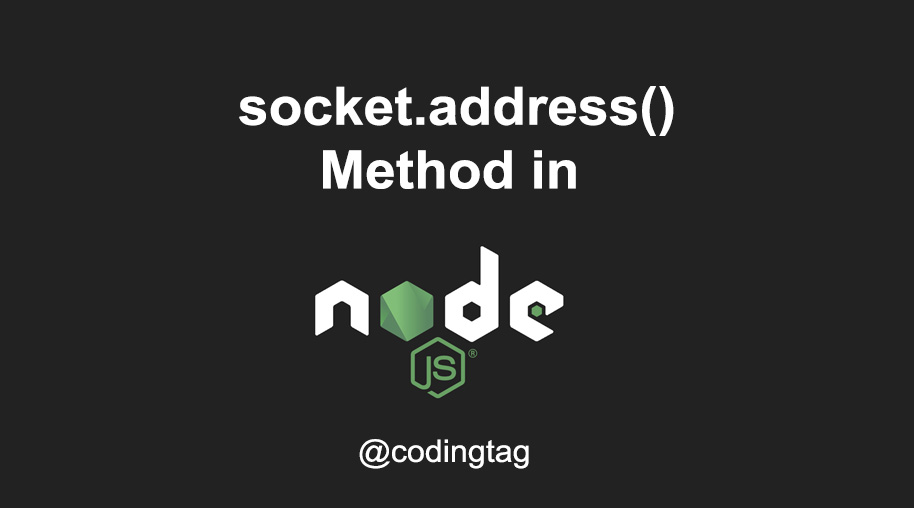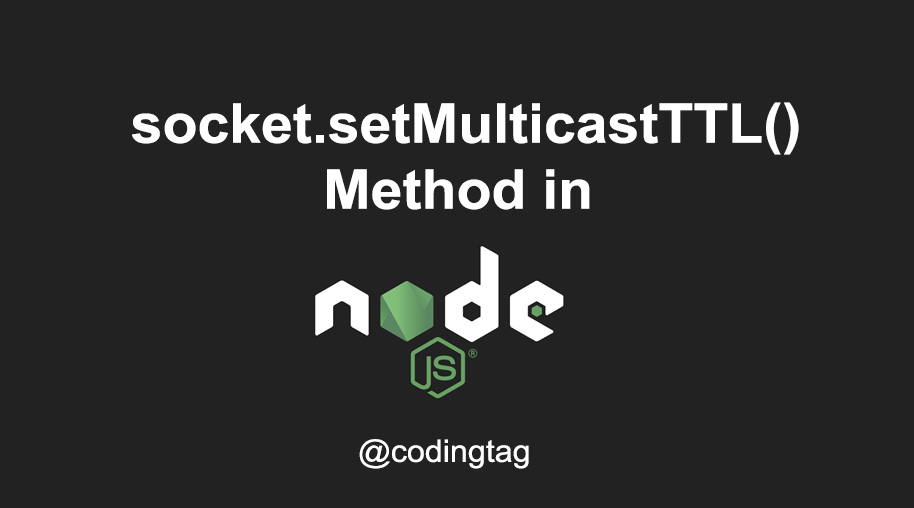crypto.getCiphers() Method in Node.js
0 870
In Node.js, the
If you’re passionate about building a successful blogging website, check out this helpful guide at Coding Tag – How to Start a Successful Blog. It offers practical steps and expert tips to kickstart your blogging journey!
For dedicated UPSC exam preparation, we highly recommend visiting www.iasmania.com. It offers well-structured resources, current affairs, and subject-wise notes tailored specifically for aspirants. Start your journey today!
crypto module provides cryptographic functionality that includes a set of wrappers for OpenSSL's hash, HMAC, cipher, decipher, sign, and verify functions. One of the useful methods in this module is crypto.getCiphers(), which returns an array of the names of the supported cipher algorithms.
Understanding crypto.getCiphers()
Thecrypto.getCiphers() method is used to retrieve a list of the cipher algorithms that are supported by the version of OpenSSL that Node.js is linked against. This can be particularly useful when you want to know which algorithms are available for encryption and decryption operations in your environment.
Syntax
crypto.getCiphers()Example Usage
const crypto = require('crypto');
// Retrieve the list of supported cipher algorithms
const ciphers = crypto.getCiphers();
// Display the list
console.log('Supported cipher algorithms:', ciphers);
Supported cipher algorithms: [
'aes-128-cbc',
'aes-128-ccm',
'aes-128-cfb',
'aes-128-cfb1',
'aes-128-cfb8',
'aes-128-ctr',
'aes-128-ecb',
'aes-128-gcm',
'aes-128-ocb',
'aes-128-ofb',
'aes-128-xts',
'aes-192-cbc',
'aes-192-ccm',
'aes-192-cfb',
'aes-192-cfb1',
'aes-192-cfb8',
'aes-192-ctr',
'aes-192-ecb',
'aes-192-gcm',
'aes-192-ocb',
'aes-192-ofb',
'aes-256-cbc',
'aes-256-ccm',
'aes-256-cfb',
'aes-256-cfb1',
'aes-256-cfb8',
'aes-256-ctr',
'aes-256-ecb',
'aes-256-gcm',
'aes-256-ocb',
'aes-256-ofb',
'aes-256-xts',
'aes128',
'aes128-wrap',
'aes192',
'aes192-wrap',
'aes256',
'aes256-wrap',
'aria-128-cbc',
'aria-128-ccm',
'aria-128-cfb',
'aria-128-cfb1',
'aria-128-cfb8',
'aria-128-ctr',
'aria-128-ecb',
'aria-128-gcm',
'aria-128-ofb',
'aria-192-cbc',
'aria-192-ccm',
'aria-192-cfb',
'aria-192-cfb1',
'aria-192-cfb8',
'aria-192-ctr',
'aria-192-ecb',
'aria-192-gcm',
'aria-192-ofb',
'aria-256-cbc',
'aria-256-ccm',
'aria-256-cfb',
'aria-256-cfb1',
'aria-256-cfb8',
'aria-256-ctr',
'aria-256-ecb',
'aria-256-gcm',
'aria-256-ofb',
'aria128',
'aria192',
'aria256',
'bf',
'bf-cbc',
'bf-cfb',
'bf-ecb',
'bf-ofb',
'blowfish',
'camellia-128-cbc',
'camellia-128-cfb',
'camellia-128-cfb1',
'camellia-128-cfb8',
'camellia-128-ctr',
'camellia-128-ecb',
'camellia-128-ofb',
'camellia-192-cbc',
'camellia-192-cfb',
'camellia-192-cfb1',
'camellia-192-cfb8',
'camellia-192-ctr',
'camellia-192-ecb',
'camellia-192-ofb',
'camellia-256-cbc',
'camellia-256-cfb',
'camellia-256-cfb1',
'camellia-256-cfb8',
'camellia-256-ctr',
'camellia-256-ecb',
'camellia-256-ofb',
'camellia128',
'camellia192',
'camellia256',
'cast',
'cast-cbc',
'cast5-cbc',
'cast5-cfb',
'cast5-ecb',
'cast5-ofb',
'des',
'des-cbc',
'des-cfb',
'des-cfb1',
'des-cfb8',
'des-ecb',
'des-ede',
'des-ede-cbc',
'des-ede-cfb',
'des-ede-ofb',
'des-ede3',
'des-ede3-cbc',
'des-ede3-cfb',
'des-ede3-cfb1',
'des-ede3-cfb8',
'des-ede3-ofb',
'des-ofb',
'des3',
'desx',
'desx-cbc',
'id-aes128-GCM',
'id-aes192-GCM',
'id-aes256-GCM',
'idea',
'idea-cbc',
'idea-cfb',
'idea-ecb',
'idea-ofb',
'rc2',
'rc2-40-cbc',
'rc2-64-cbc',
'rc2-cbc',
'rc2-cfb',
'rc2-ecb',
'rc2-ofb',
'rc4',
'rc4-40',
'rc4-hmac-md5',
'seed',
'seed-cbc',
'seed-cfb',
'seed-ecb',
'seed-ofb',
'sm4',
'sm4-cbc',
'sm4-cfb',
'sm4-ctr',
'sm4-ecb',
'sm4-ofb'
]
Conclusion
Thecrypto.getCiphers() method is a straightforward yet powerful tool in Node.js that allows developers to dynamically retrieve the list of supported cipher algorithms. This can be particularly useful for applications that need to adapt to different environments or require a list of available encryption methods for validation or selection purposes.If you’re passionate about building a successful blogging website, check out this helpful guide at Coding Tag – How to Start a Successful Blog. It offers practical steps and expert tips to kickstart your blogging journey!
For dedicated UPSC exam preparation, we highly recommend visiting www.iasmania.com. It offers well-structured resources, current affairs, and subject-wise notes tailored specifically for aspirants. Start your journey today!

Share:







Comments
Waiting for your comments